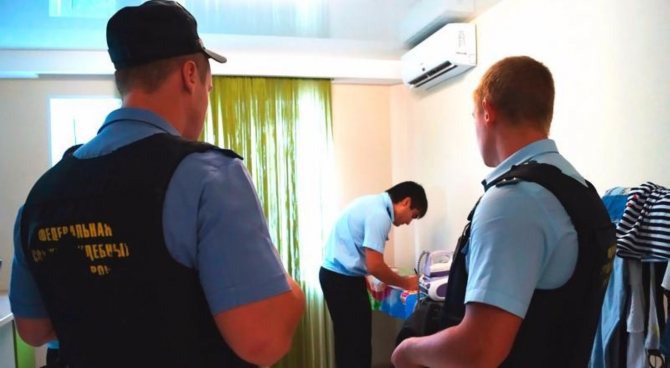Home » Housing disputes » Can they be evicted from an apartment if there is no other housing?
3
Forced eviction from a residential premises is an unpleasant phenomenon, one might say regrettable, and not as rare as we would like. Any eviction is sad, but a particularly pressing question arises: where to turn for help, what to do if a person is evicted from an apartment and has no other housing.
Yes, the Constitution of the Russian Federation guarantees a citizen’s right to housing, but, on the other hand, the law provides for a number of reasons why a person can lose his only home and literally remain on the street.
Is it possible to evict a person from his only home?
The term “sole housing” means registration in a residential premises in the absence of other alternative housing. It follows from this that if a citizen is evicted from this premises, then this eviction will be “to nowhere.”
The law specifies a number of reasons why a citizen can be evicted, but these reasons must be sufficiently compelling and serious. Therefore, eviction without the provision of alternative housing is extremely rare and occurs in very egregious cases when it is impossible to solve the problem in any other way.
Usually, at first there are many attempts to resolve the situation in softer ways:
- a warning is issued;
- the citizen is obliged to eliminate the violation;
- a fine is imposed on the violator;
- administrative arrest occurs;
- forced labor is awarded,
and only when all measures of influence have not brought the desired result is forced eviction initiated.
Is it possible to evict from the only home?
Can they be evicted from an apartment if there is no other housing?
At the moment, this measure is exceptional; it is protected by Article 446 of the Civil Procedure Code of the Russian Federation, which prohibits the seizure of a single apartment or house .
But, based on existing judicial practice, the owner may well be evicted from the square meters he owns in case of malicious violation of the rules of residence.
In 2020, the Ministry of Justice will develop a detailed bill that will ensure the elimination of all gaps in existing legislation on this issue.
This project provides for the withdrawal of square meters for sale to pay off the existing debt for utilities, while residents will be able to live in this apartment until purchasing a new one after paying off the debt or providing social housing with less comfort and space, if the owner has the right to do so.
If there are other violations of residence, the possibility of last resort will be considered on a case-by-case basis.
At the moment, the only housing was confiscated in rare cases due to non-payment of housing and communal services and lack of payments on loans and mortgages, as well as a number of other reasons.
It is worth knowing that Article 446 of the Civil Procedure Code of the Russian Federation does not work in the case of a mortgage.
Since until the loan debt is fully repaid, the apartment or house belongs to the financial institution. And this gives her every right, in case of malicious non-payment, to send a petition towards the collateral housing.
You can learn about the grounds for eviction from a privatized, non-privatized, service or communal apartment from our articles.
Grounds for eviction from the only home
Some citizens mistakenly believe that they can only evict from municipal housing, and if they are the owners of the apartment, then no one will ever be able to evict them, but this is far from the truth. There are situations when eviction from a privatized apartment is possible.
The grounds on which they can be evicted from a residential premises, even if there is no alternative housing:
- The house in which the living quarters are located is recognized as unsafe and must be demolished. In this case, the entire house is resettled, regardless of the ownership of the building and the residential premises located in it.
- Residential premises are transferred to non-residential stock.
- As a result of major renovations, the area of the apartment decreased, as a result of which it no longer met housing standards.
- There was arrears in utility bills for a period of more than six months.
- The tenant made illegal redevelopment in the residential premises (without the owner’s permission).
- The living space is not used for its intended purpose.
It is enough for the tenant to commit at least one of the above-mentioned violations, or for at least one of the above-mentioned reasons to initiate eviction, but often this procedure is only possible if several reasons are combined, for example, a citizen allows damage to municipal property (an apartment in which he lives under a contract social rent) and regularly violates the rights of neighbors.
But even when the above grounds occur, the court does not always side with the plaintiff.
For example, if the tenant of a residential premises has unauthorizedly carried out redevelopment, but it does not violate the rights of neighbors and does not threaten the integrity of the building, the court is unlikely to decide to evict the tenant. To begin with, the court will issue a warning and oblige the violator to either legitimize the redevelopment (if a technical examination gives permission for this), or to restore the residential premises to their original condition at their own expense, if an independent examination finds that during the reconstruction of the residential premises, building codes and regulations were violated.
Eviction from the only dwelling
It is always necessary to proceed from the current standards in order to find out whether the put forward reason can be considered legitimate or subject to challenge.
Sometimes a paradoxical situation arises when the owner of expensive real estate persistently violates his obligations or is not going to pay for the resources consumed.
There is no need to wait for a court decision. After all, seizure will not allow the sale and acquisition of other property.
Eventually, it will be possible to sell existing valuable property and pay off debts or take steps to resolve the problems that led to the eviction.
For debts
Practice shows that eviction from the only home for debt does not happen so often. People living in public housing and communal apartments should be most wary.
It only takes six months of not paying monthly bills to start the procedure. In order not to be forced to find yourself without a roof over your head, you need to prove that:
- you have been fired from your job and have not yet been able to find a job;
- the family is experiencing a difficult financial situation; there are barely enough funds to cover basic expenses;
- there are minor children in their care;
- the employer himself or his family members have a serious illness, which can lead to disability.
A court decision will provide an opportunity to move to another place. At the same time, isolation, compliance with all housing and sanitary standards, and residence in the same city or village are maintained. Each family member must have at least 6 meters.
From my own
Owners of a privatized apartment are in a more advantageous position. It will not be possible to evict them from their only property.
If the property is used for other purposes, violates the rights of neighbors or owes utility bills, court orders or fines are applied.
Eviction is possible if housing is needed for municipal or state needs. It will be redeemed.
If there is other housing, a claim is filed to allow eviction from the disputed apartment in order to sell it at auction and pay debts or eliminate the consequences of destruction.
The Mortgage Law states that the financial institution that provided the loan must notify the debtor one month in advance and demand payment of the debt.
Otherwise, the apartment is put up for auction, but until the sale has taken place, you can deposit funds, taking into account bank expenses, and return the property.
From the municipal
Strict requirements are imposed on tenants under a social tenancy agreement.
When living in a communal or municipal apartment, you should avoid delays in paying your bill for more than six months, despite the fact that the contract is of an indefinite nature.
People can be evicted without approval as a result of the housing being declared unsafe, the house being demolished, or being transferred for municipal needs. However, an alternative option must be provided that does not worsen living conditions.
The reason may be termination of the contract, violation of the interests of other residents, or misuse.
If violations are not corrected and bills are not paid, the authorities turn to the courts. The decision will set the execution flywheel in motion and eviction will occur.
Accommodation in the office space is possible as long as the terms of the signed employment contract are in effect.
Nuances of eviction from various types of housing
Different types of residential properties require different eviction procedures. If you can evict a tenant from one type of apartment (for example, a service apartment) without any problems, then it is quite difficult to evict a tenant from another (for example, a privatized one).
Let's look at some of the nuances of eviction from residential apartments with different forms of ownership.
Service housing
Service (specialized) apartments are provided for temporary use under a service lease agreement for the period of labor relations between the employer and the employee of the organization. Therefore, the employment contract is valid only as long as the employment relationship continues.
As soon as an employee leaves the organization, or his fixed-term employment contract ends, he is obliged to leave the company apartment.
But sometimes the owner of the residential premises initiates the eviction of the employee from the service apartment even before the end of the employment relationship. In what cases can this happen?
- The tenant is violating the rights of his neighbors. If a tenant leads an antisocial lifestyle, is rowdy, and constantly makes noise at night, then most likely he will be evicted from the premises.
- The tenant uses the service apartment for other purposes. This could be subletting an apartment, using it as a warehouse or workshop for the production of some products, or any other use not for living.
- Debt for housing and communal services for more than three months.
- Intentional damage to real estate. Legislation includes the illegal redevelopment of a residential premises, rendering it unusable due to violation of sanitary standards, etc., as intentional damage.
But the legislation specifies certain categories of citizens who cannot be evicted from a service apartment without providing alternative housing, even if they have violated all the rules and clauses of the contract, these are:
- disabled people of the first and second groups, if the cause of disability was the performance of their official duties;
- old age pensioners;
- family members of the employer, if the latter has died;
- family members of a law enforcement officer if he died in the line of duty;
- orphans.
For example, Nadezhda and Pyotr Zamankov lived with two children in a service apartment under a service lease agreement. During an accident at the enterprise, the father died, and the mother was seriously injured, causing disability. Nadezhda could no longer work and was forced to terminate her employment contract with the company.
But the organization does not have the right to evict her from the apartment she occupied, since she became disabled as a result of an industrial accident. In addition, two children were left orphans and lost their father, who died in the line of duty.
Municipal
Citizens live in municipal residential premises under a social tenancy agreement, which, unlike a service tenancy agreement, gives the right to live in the residential premises indefinitely. The legislation of the Russian Federation stipulates several grounds on which a citizen can be evicted from municipal residential premises, for example:
- if the residential building is intended for demolition;
- residential premises are transferred for the needs of the state or municipal authorities;
- the house is in disrepair and requires major repairs,
but in the above cases, the tenant is required to provide alternative living quarters of the same or better quality.
In cases of long-term debt on utility bills, the tenant may be evicted, but with the obligatory provision of alternative housing of a smaller area or of worse quality.
There are a number of grounds on which a tenant can be evicted without providing other living space. This may happen if:
- Long-term absence from residential premises for an unexcused reason. For example, a citizen has moved for permanent residence to another locality and the apartment has been empty for a long time.
- Damage to municipal property.
- Deprivation of the employer's parental rights. This is possible if a minor child is registered in the living space of parents whose parental rights are deprived by the court. Since a child cannot be evicted from a municipal apartment “to nowhere,” and citizens deprived of parental rights do not have the right to live with their child, they are evicted from the apartment where the child is registered.
The law defines two categories of persons who cannot be evicted from municipal housing without providing alternative housing under any circumstances:
- Minor children. Accordingly, if the mother and father are not deprived of parental rights, they are also not subject to eviction.
- Disabled people of the first group.
It is extremely rare for municipal authorities to go to court with an eviction claim. Typically, local governments try to resolve the problem out of court:
- conduct preventive conversations, involving law enforcement agencies;
- issue warnings;
- in case of non-payment of utility bills, they provide installment plans or carry out debt restructuring,
and only in extreme, especially difficult cases do they file a claim for eviction in court.
At the same time, court proceedings in such situations are carried out especially scrupulously; many pros and cons are considered for the expulsion of the offender from the living space he occupies, especially if this is a claim for eviction without the provision of alternative housing.
Own (privatized)
If the owner of the apartment does not have other housing, then eviction is impossible. In case of even serious violations, other means of influence may be applied to him, but even the court does not have the right to evict the owner from his apartment.
If the offender owns another residential property, then, based on a lawsuit, the court may decide to expel the owner from his apartment and subsequently sell it at public auction. In this case, the funds remaining after collecting all legal costs from the defendant are transferred to the owner of the sold apartment.
An exception is eviction from a mortgaged apartment. In this case, until the mortgage debt is fully repaid, the residential premises are pledged to the credit institution, that is, in fact, the owner of the property is not the violator living in it, but the bank.
In this case, even the fact that the housing is the only one is not a mitigating circumstance that could influence the court's decision. Also, the court is unlikely to consider the fact that the family has minor children as a mitigating factor; in this case, the court can only grant the family a deferment for eviction.
In what cases can they be evicted?
The grounds for eviction are regulated by Art. 293 of the Civil Code of the Russian Federation and Art. 91 of the Housing Code of the Russian Federation. The reasons may be:
- Use of living space for purposes other than its intended purpose.
If a citizen uses private real estate to sell goods or store things as a store or warehouse, or organizes an office or production there, this may violate sanitary and safety standards.
- Violation of neighbors' rights.
For alcohol abuse, systematic rows and riots, a citizen can be evicted from an apartment if his actions disturb the peace and jeopardize the safety of his neighbors.
- Negligence leading to the destruction of a building or premises.
Redevelopment without the appropriate permission or violation of sanitary standards can cause the destruction of the building or make it uninhabitable.
- Large debts on utility bills.
Eviction for debt is a last resort. First they issue warnings and attempt to recover money through the courts. If this does not help, and the debtor does not have valid reasons, the rental agreement can be terminated.
- Deprivation of parental rights.
If, according to a court decision, a parent cannot live with a child due to cruel treatment and deprivation of parental rights, he may be evicted from the apartment.
- Unauthorized occupation of housing.
Read How to choose an arbitration manager in bankruptcy?
If an individual lives in an apartment illegally, you can easily expel him by contacting law enforcement agencies or the court.
Law-abiding citizens are most concerned about the issue of debts to banks and microfinance organizations for loans, borrowings and mortgages. So, under the new law, is it possible to be left without the only home due to debts? Theoretically, under a number of circumstances, this is possible, but rarely in judicial practice such cases end in loss of living space. However, it is not worth accumulating debts, hiding from the bank collection service and bailiffs, hoping for the protection of the law. It’s better to deal with the debt trap and restore peace of mind to yourself and your family.
Eviction procedure
As mentioned above, eviction from any apartment can only be by a court decision. If the tenant does not comply with this decision voluntarily, the plaintiff applies to the bailiff service with a petition to initiate enforcement proceedings.
After the SSP employee accepts the writ of execution and opens proceedings on it, he notifies the plaintiff and defendant in this case. In addition, he sends a demand to the defendant to collect an enforcement fee from him.
Then the SSP officer sets a deadline for eviction and sends a written notice to the defendant, in which he invites the latter to comply with the court decision voluntarily.
After the expiration of the period specified in the notice, the bailiff has the right to carry out a forced eviction without prior warning, if necessary, involving employees of the Ministry of Emergency Situations and law enforcement agencies.
The main task of the SSP employees is to free the property from illegal occupants, their property, and pets. The entire procedure takes place in the presence of two witnesses. When vacating a residential premises, the bailiff must draw up two documents:
- an eviction act, which all participants in the procedure must sign;
- inventory of the defendant's property.
If the evicted person has nowhere to take his things, after they have been described, they can remain in safekeeping for two months; in this case, a note is placed in the document where exactly the defendant’s property will be located and the latter can pick it up at any time.
Where will they be kicked out?
Most often, if a person has absolutely nowhere to go, and there is no money to rent another living space, he can be temporarily placed in the so-called reserve fund, or given a room in a dormitory. When evicting from a municipal apartment, another residential space of a smaller area (but not less than six square meters per person) is allocated instead of the previous one, while the previous social tenancy agreement is terminated and a new one is concluded.
If a citizen must leave the apartment without providing any other alternative housing, then the courts adhere to an unspoken rule: they grant a deferment for eviction until the end of the heating season. In the cold, no one will be kicked out into the street, no matter what malicious violations the person commits.
How to Avoid Eviction
If a court decision has already been made and entered into legal force, then it is impossible to prevent its execution. Moreover, this is fraught with additional financial costs. Until the court decision has entered into legal force, it can be challenged, but in the vast majority of cases this is of little prospect.
There is only one thing left: to avoid violations that could become the basis for such a procedure, or, if a violation does occur, to try to resolve the problem without bringing it to court proceedings. To do this, it will be enough to correct the violation that you committed.
- If it is a debt for utility bills, conclude an agreement with local governments on its restructuring.
- If you receive a demand to leave your living space due to the fact that you are violating the rights of your neighbors, try to somehow resolve the problem, find a common language with your dissatisfied neighbor, and prevent such violations in the future.
- If you have carried out an illegal redevelopment, try to legitimize it (legislation allows such a procedure to be carried out “retroactively”), but if an independent technical examination has concluded that your actions have violated the integrity of the load-bearing walls or threaten the stability of the building, restore the living space to its original form.
All is not lost even if you have already received a subpoena. Contact a lawyer for help. He will help you collect evidence that can help you in court proceedings, tell you how to behave in court, and, if necessary, represent your interests in court. Compromise, try to resolve the problem while you can.
If the court sees that you sincerely want to correct the situation, most likely, it will meet you halfway, or at least give you a reprieve.
You should do things a little differently if you have a large mortgage debt and are facing eviction. What to do in this case?
- Be proactive and don’t wait for the credit institution to send you a claim. Go to the bank and write an application asking for a deferment or debt restructuring. In the application, indicate the reason why you were unable to pay the debt on time; be sure to attach to the application a certificate of income, an order of dismissal, information about dependents, receipts for treatment, a certificate from the hospital - any document that will prove a valid reason for the delay. Lenders are more willing to accommodate borrowers who are not hiding from debt.
- If you have lost time and have already received a subpoena, then you still have the opportunity not to lose your apartment. Collect documents proving a valid reason for the debt, and in court, contact the creditor’s representative with a request for an installment payment plan or a deferment if you currently have no ability to pay the mortgage. It is extremely unprofitable for a credit institution to terminate a loan agreement with a borrower; in this case, it loses profit, therefore, if the lender sees that you sincerely want to correct the situation and are making some efforts to do so, he will meet you halfway.
Forced eviction without the provision of alternative housing is extremely rare. But there are such precedents. The vast majority of defendants in such cases are debtors for a mortgage loan or for housing and communal services. But there are also rowdy people who have been deprived of parental rights and who sublet municipal housing without the permission of the municipality.
All these lawsuits might not have taken place if citizens had better known not only their rights, but also their responsibilities, if necessary, used the services of competent lawyers and tried to solve the problem, if it had arisen, in a pre-trial manner.
FREE CONSULTATIONS are available for you! If you want to solve exactly your problem, then
:
- describe your situation to a lawyer in an online chat;
- write a question in the form below;
- call Moscow and Moscow region
- call St. Petersburg and region
Save or share the link on social networks
Author of the article
Natalya Fomicheva
Website expert lawyer. 10 years of experience. Inheritance matters. Family disputes. Housing and land law.
Ask a question Author's rating
Articles written
513
- FREE for a lawyer!
Write your question, our lawyer will prepare an answer for FREE and call you back in 5 minutes.
By submitting data you agree to the Consent to PD processing, PD Processing Policy and User Agreement
Useful information on the topic

9
Agreement on donation of a share of an apartment between close relatives
Alienation of a share of residential premises is possible in several ways: under a purchase and sale agreement,...

1
How to evict your roommate from your apartment
Neither legal nor civil marriages provide guarantees of long and...

Cancellation of apartment privatization
Abolition of privatization, also known as deprivatization or deprivatization, is...

6
The procedure for forced eviction from an apartment by court decision
The court decided to evict a citizen from the residential property he occupied...

Privatization of leased land
Privatization of a leased land plot will allow its owner to use it for any purpose...

2
How much does it cost to privatize an apartment?
Privatization of an apartment is a free procedure, but only within the cost...






